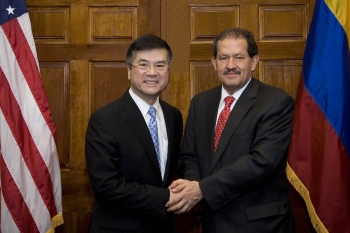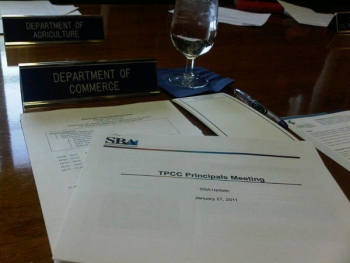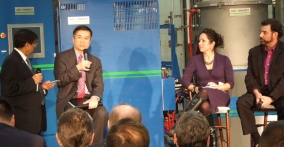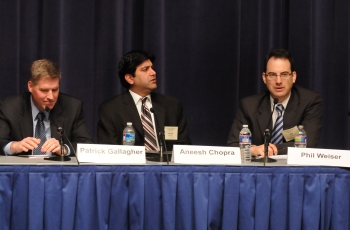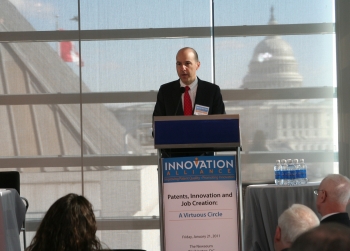Startup America Kickoff at the White House
Secretary Locke participated in the White House launch of the “Startup America” initiative today in Washington, D.C. with U.S. Department of Energy Secretary Steven Chu, Small Business Administration Administrator Karen Mills, Director of the National Economic Council Gene Sperling, Chairman of the Council of Economic Advisors Austan Goolsbee, and a number of America’s top entrepreneurs and business leaders.
“Startup America” is a national campaign to promote high-growth entrepreneurship across the country with new initiatives to help encourage private sector investment in job-creating startups and small firms, accelerate breakthrough research, and address barriers to success for entrepreneurs and small businesses. The launch follows President Obama’s State of the Union commitment to winning the future by out-innovating, out-educating, and out-building the rest of the world.
To support this effort, the Department of Commerce plans to build on the success of last year’s inaugural i6 Challenge with i6 Green, a second competition this year focused on both regional economic development and environmental sustainability. The program aims to accelerate technology-led economic development in pursuit of a vibrant, innovative clean economy. The department is also developing the Three Track program at the U.S. Patent and Trademark Office, which would give innovators more control over application processing and support a more efficient market for innovation.
Today’s event was one of a number of events the White House will hold this week to focus on innovation and how we can create the jobs and industries of the future by investing in the creativity and imagination of the American people. Learn more about Startup America by viewing the complete fact sheet, and learn about the independent and private-sector led campaign to mobilize private-sector commitments at Startup America Partnerships. | Remarks


